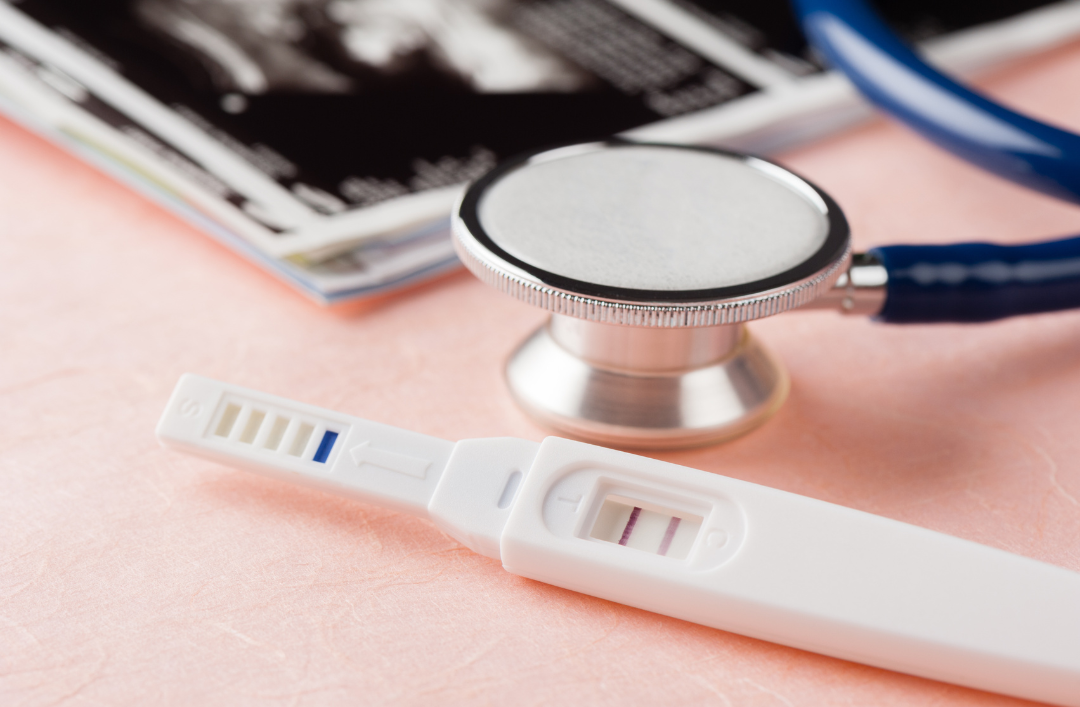In order to get pregnant, sperm must meet up with an egg. When a fertilised egg implants in the uterine lining, pregnancy officially begins. It takes up to 2-3 weeks after sexual intercourse for becoming pregnant.1
Don’t rely on luck if you’re trying to conceive a baby. Learn about the ways to get pregnant, starting with ovulation prediction and fertility do’s and don’ts.
Predicting ovulation:
Knowing when you’re ovulating (when the ovary releases an egg) and having intercourse regularly five days before and on the day of ovulation can increase your chances of becoming pregnant.
Ovulation is the release of a mature egg from the ovary. The egg moves down the fallopian tube after being released and stays there for 12 to 24 hours, where it can be fertilised. Under proper conditions, sperm can survive for up to five days inside the female reproductive tract after sexual intercourse. When live sperm are present in the fallopian tubes during ovulation, your chance of getting pregnant is the most.
Ovulation usually happens around 14 days before the start of the next menstrual period in a 28-day menstrual cycle. Depending on the length of each person’s cycle, the time between ovulation and the start of the next period may differ. If you don’t have a perfect 28-day monthly cycle, like many women, you can use a menstrual calendar to track the length and midpoint of your cycle.
In addition to the calendar, search for ovulation signs and symptoms in order to get pregnant fast:
- Changes in vaginal secretions (cervical mucus) – You may notice an increase in clear, moist, and stretchy vaginal secretions just before ovulation. Cervical mucus thickens, becomes cloudy, and becomes less noticeable shortly after ovulation.
- Change in basal body temperature – During ovulation, your body’s resting temperature (basal body temperature) slightly rises. Take your temperature every morning before getting out of bed with a thermometer designed to detect basal body temperature. Keep track of the outcomes and seek a pattern. During the two to three days before your temperature increases, you’ll be most fertile and this is the best chance to get pregnant.
You might also use an over-the-counter ovulation kit to assist you to figure out when you’re most likely to ovulate. These kits check your urine for the hormone surge that occurs just before ovulation. Ovulation happens 36 hours after a positive result.
Fertility Dos:
Follow these simple steps to get pregnant:
- Have sex on a regular basis – Couples who have sex every day or every other day have the highest pregnancy rates.
- Have sex right before ovulation – If daily sex isn’t possible or pleasurable, start having sex every 2 to 3 days a week shortly after your menstruation ends. This can help in ensuring that you have sex during your most fertile time.
- Maintain a healthy body weight – Ovulation issues are more common in overweight and underweight women. Maintaining a normal weight helps avoid ovulation disorders.
Fertility Don’ts:
To improve your ways to get pregnant:
- Avoid smoking – Tobacco has a number of negative effects on fertility, as well as your overall health and that of the fetus. You should speak to your doctor before trying to conceive if you smoke.
- Don’t consume alcoholic beverages – Heavy alcohol use has been linked to a reduction in fertility. If you’re trying to conceive, it’s better to stay away from alcohol.
- Avoid caffeine consumption – According to research, caffeine consumption of fewer than 200 milligrams per day has no effect on fertility. Approximately one to two cups (6 to 8 ounces) of coffee per day.
- Don’t overdo when it comes to strenuous activities – Decreased ovulation has been linked to strenuous, intensive activity for more than five hours per week.2
Call your doctor when:
If you’ve been trying to conceive but haven’t been successful, consult your health care physician or a fertility specialist.
When should you see a doctor and how long should you wait? That is determined by your age.
- Before seeking medical aid, women under the age of 35 should try for at least a year.
- After 6 months of trying, women aged 35 and up should see a doctor.
If you have irregular or no periods, endometriosis, pelvic inflammatory disease, a history of miscarriage, hernia surgery, or a problem with the testicles (in your male partner), make an appointment immediately with your doctor.
Your health and medical history will be assessed by the doctor. Medications, insemination procedures, and surgery can all help people who are having trouble conceiving.3





